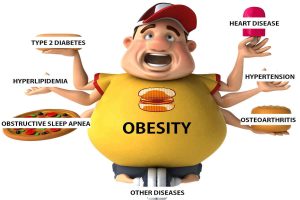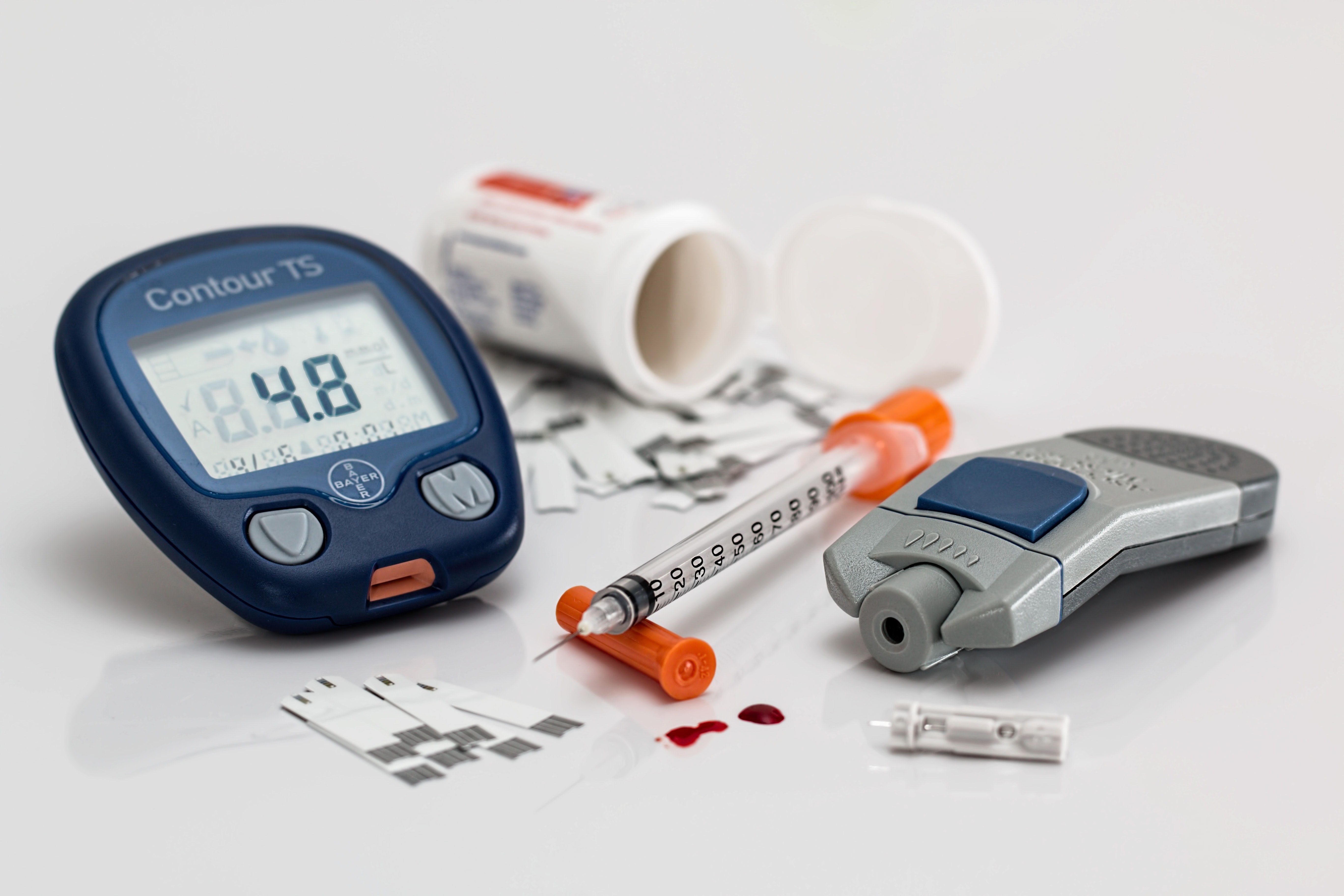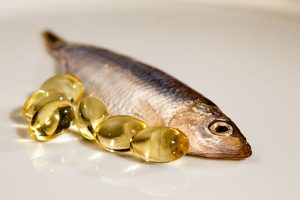
Janet Lewis: Hello, and welcome to this week’s show. I’m Janet Lewis.
Dr. Lewis: And I’m Dr. Lewis.
Janet Lewis: And we are Green Wisdom Health, home of you low cost lab work, where you don’t have to guess at what’s going on with your health. We actually test by using lab work to assess where you are with your nutritional values. Speaking of nutritional values, we have a very exciting show today about obesity, because it is prevalent in our society. Today’s show is called The Obesity Crisis, because it literally is a crisis here in America. For those of you listening in other countries, I know it’s not that big of a crisis for you there, because you guys get better food. So Dr. Lewis is going to talk to us today a little bit about why so many of our children are now overweight, when that used to be a very rare thing, and why America itself is so much overweight. With that being said, Dr. Lewis, I’m hoping you’re going to educate us and help us all get skinny.
Dr. Lewis: Well, I don’t know about that. I promise you today I’m going to go down a lot of rabbit trails. I appreciate your phone calls and emails and the people that drop by locally. We just got an email from a lady named Lisa that said, “I enjoy the information that you and Janet give on these podcasts, and because of that, my son has da da da.” Thank you for listening, for folks out there, thank you for sharing.
Dr. Lewis: The best thing sometimes you can do for yourself to get healthy is to help others get healthy. It’s more of a matter of mind and spirit and how you focus that. Yes, you have to do some things physically, too, and I’ve been on a lot of podcasts lately. Going on another one in about 30 minutes. This will be down the rabbit trail I promise you, but what started this was this week we had this thing, you know, it scrolls across Good Morning, America, which Jan and I have trouble listening to, because they’re always very negative. But it scrolled about before long cancer is going to be the second leading killer, behind obesity.
Janet Lewis: Wow, really? That’s scary.
Dr. Lewis: But there’s a big link between the two. We get people that come in here and say, “Well, if I can just lose weight, everything else will take care of itself.” I said, “Well, if you take care of everything else and get healthy, you’ll lose weight.” The problem is, we’ve become a society where we want it instantly, and we’re not willing to suffer. It’s like, “I’m hungry.” It’s like, “So what? Have you never been hungry?” It’s about courage. Sometimes you just have to have the courage. Like the old thing that says nothing tastes as good as skinny feels. It’s like, well, sugar is my issue, too. I relate it to Mother’s love, when I got off the school bus a million years ago.
Dr. Lewis: Cancer is probably the scariest diagnosis you can get, but obesity is like, “Well, we’re not going to do any body shaming. This is healthy, and I’m happy.” It’s like, “Well, I’m glad you’re happy. Yeah, you can get along and do good, but if you’re over weight, you’re not healthy. You’re lying to yourself.”
Janet Lewis: Well, I think a lot of it is so many people are overweight that when someone sees someone else that is, they just assume that that’s normal, because so many people are overweight. Where we used to look at it differently. It was like, “Oh, wow. What’s going on with them? Because they’ve gained a lot of weight.” Now it’s just common place to see everybody being large.
Dr. Lewis: So our perception has changed. Sometimes we mix up what’s common versus what’s normal. We say, “Well, that’s common, therefore it’s normal.” No, it’s not really.
Dr. Lewis: So I’m going to go down a lot of rabbit trails. My apologies to Amanda and to Jonathan. I’m going to do it anyway. I hear this all the time. People say, “But I eat good.” Of course, I’m a Lewis, so I roll my eyes and say, “Yeah, yeah, yeah.” If eating good is getting you this way, you need to start eating Snickers and ice cream. I’m never that impolite, but I gain weight over stress and how I eat incorrectly. Janet, not so much. But people say, “I’m doing everything right.” Some of the people really are. They get at the end of the rope, and they need to lose 40 pounds, but then they come in … Since they’re at the end of the rope, they don’t have the patience to kind of hang in there a lot of times.
Dr. Lewis: Sometimes people make food choices, and they’re not really as good as you think they are. Sometimes it makes you bloated and tired. Well, that’s a big indicator you need digestive enzymes. Sometimes people use a butter substitute, and they don’t realize that is super inflammatory oils that you don’t need. They do grains. You want to lose weight? Quit eating grains. You’re supposed to keep your sugars or the high glycemic vegetables down to where you’re only getting about 25 grams. Or you get it under 50 grams a day of simple carbohydrates and sugars, you’ll most likely lose weight.
Dr. Lewis: What people do, they say, “Well, I like the salad dressing. I’m eating a healthy salad.” But the little packages of salad dressing, they taste good, so let’s go for two or three. What happens is, it’s full of inflammatory oils, even though you think it’s healthy. Then wash it down with a diet soda. Well, you’ve heard me say aspartame not only contributes to obesity but dementia and all kinds of other things as well. We’ve known that since the 1970s. Why that stuff is on the market, I don’t know. Go talk to your congress about it. These people that are trying to eat healthy, and I applaud the effort, but you still get hungry. Sometimes I can eat a meal, and it’s like I’m hungry later. I find out, well, maybe that meal wasn’t that healthy, and, oh, probiotics. Which I hope I have time to get into.
Dr. Lewis: Sometimes people are eating too much and too many calories, but they’re still malnourished. You have to make sure they’re nutrient dense, not calorie dense, but nutrient dense. If you’re lacking in minerals and vitamins and enzymes, you kind of stay a little bit hungrier than you should. One of the things I tell people is you have a life force, you have a spirit, but you’ve got to encourage it and not succumb to discouragement. That’s the big kicker. I’m subject to that, too. Janet’s been a really good help for me.
Dr. Lewis: But these diets, they’re pro-inflammatory. Breakfast, sometimes it’s a roll. Well there you go. You’ve got your grains. If you’re eating grains, that’s terrible. If it’s a butter substitute. When I eat butter, I eat real butter. And I mean I eat the holy heck out of it, because the fake butter is 60-something percent inflammatory omega-6 oils. I refuse to eat that stuff. Maybe on the sandwich the meat might be okay, if it’s not full of the nitrates and nitrites. Stay away from grains. I said that, I know.
Dr. Lewis: For example, I’ve got this friend. Wonderful, wonderful guy. He goes out and he blesses people right and left. He has a happy, happy life. He said, “But I’m overweight.” I said, “You eat bad stuff.” I said, “Well, you need to quit eating grains.” He says, “Nope. United States Department of Agriculture says do 6 to 11 servings of grains a day.” I said, “When you had an FFA calf, what did you feed it to get it fat?” He said, “Grain. Oh my god, you caught me.” I said, “You’re about to have some sort of heart incident. You need to change your diet, see a cardiologist.”
Dr. Lewis: About three weeks later, his girlfriend called me and says, “Dr. Lewis, he’s in the hospital. He had an incident.” Most of us men don’t have heart attacks. We have incidents with our heart. That’s another way we lie to ourselves. She says, “Please don’t tell him I told you so.” I said, “Honey, you know I’m going to tell him I told you so.” He finally did lose, I don’t know, 7500 pounds, but he had to go through his incident before it scared the holy heck of him for him to give up drinking that 18-pack of beer a day and eating all those grains. Yes, beer is made from grain. It’s not really a healthy thing, either. Man, I’m getting personal.
Janet Lewis: So is cereal.
Dr. Lewis: Yeah.
Janet Lewis: That’s the other thing that people think they can eat every morning, is cereal. I don’t know how many people go, “Really, is that a grain?” Okay, yes.
Dr. Lewis: They think corn is a vegetable. No, corn is a grain. I like corn. I do better with corn than I do with wheat. Wheat is one of the nastiest things you can put in your body, for a lot of different reasons. We’re here in east Texas, it’s a heavy Hispanic influence so it’s a give me some chips and salsa. Yeah, it hurts. You can get by with stuff like quinoa and brown rice, and that has some issues. How many people really and truly eat broccoli, spinach, kale, asparagus, and string beans?
Janet Lewis: I do! I have it in my smoothie mix that we have here, with all of our greens.
Dr. Lewis: Yeah, the Deeper Greens.
Janet Lewis: Mm-hmm (affirmative)-
Dr. Lewis: Yeah, that stuff tastes good, too.
Janet Lewis: Because if you can’t eat it. Many places don’t serve good vegetables. If you go … I hate to name it. We have a cafeteria here in town that we ate at today, and I looked at their food. They had something called a spinach soufflé, and it was a big square about the size of-
Dr. Lewis: She’s saying we. It was me that did it.
Janet Lewis: It was about the size of a iPhone, and I thought, “What is in that?” Dr. Lewis ordered it because it looked large and healthy, I guess.
Dr. Lewis: It was different. Like a big, big iPhone or two of them.
Janet Lewis: I ask them, I said, “What is in a spinach soufflé?” He said, “I think it’s a bunch of cheese.” Which, cheese is good for something.
Dr. Lewis: Then I cut into it, and it was like a piece of Wonder bread in the middle of it.
Janet Lewis: Yeah, I’m like … These vegetables you’re serving here are just not healthy. So that’s why I drink mine.
Dr. Lewis: Yeah, and we eat good vegetables when we can. I mean, who knows how much of this stuff I’m going to get around to, but butter, yes. Eat butter. Eat butter. Eat all kinds of butter. Make sure it’s good butter. It’s better if it’s grass fed. Organic is much, much better. We eat Kerry Gold. It’s not organic, but that’s about as good as you can get I think, without going organic. Some of the oils that are poison and/or inflammatory is canola, corn oil, vegetable oil. Kind of the jury is out on peanut oil. It’s probably not good. Soy bean oil, oh my god. Stay away from that. Margarine is terrible, terrible. Olive oil would be great, except it’s about 70% of them they say is adulterated, mixed with vegetable oil or canola. So I don’t know what the really good olive oils are. Stay away from canola. That’s terrible.
Dr. Lewis: Well, let me ramble. Where do you want me to go now? Oh. One of the best things you can do to lose weight, restrict your calories. I had an article up on my wall about 20 years ago that said rats that were left to eat as much as they want lived half the lifespan as rats that had their food restricted to half of the normal calories, and the rats that restricted their diet continued into old age having a really vigorous sex life. Where the ones that ate everything they wanted, they got impotent. Yes, they talk about rats and impotence.
Janet Lewis: Wow.
Dr. Lewis: Yeah. You should see the look on Janet’s face. Don’t get me started.
Janet Lewis: I never know what he’s going to come out with. I don’t know what he reads. He reads all the time.
Dr. Lewis: And I got a memory that once in a while works.
Janet Lewis: I can tell you, though, from experience, about eating. People say, “Well, I’m just really hungry.” What I’ve noticed, and Dr. Lewis explained this, and I think it’d be great for you to explain it to the audience-
Dr. Lewis: I don’t know where she’s going. I hope to god I can bring that up in my memory.
Janet Lewis: I hope he does, too. We were eating the other day, and we were eating a healthy taco, as healthy as a taco can be.
Dr. Lewis: Minus the corn tortilla, but everything else was great.
Janet Lewis: I ordered one taco, and after I got it, I was really disappointed because it was really tiny, because it was a healthier taco. I thought, “Well, okay, I’m going to eat this and then I’m going to go back up and get one more taco, because I just know I’m not going to be full from this.” So I had the taco, and then Dr. Lewis and I started talking. Maybe 10 or 12 minutes went by, or something like that. I thought, “I’m not hungry anymore. I don’t need a second taco.” I told him. I said, “Why is that? I sat here for a little while, and now I’m full.” So would you explain what happens? This is free advice. You don’t have to buy anything. This is something that you can learn to do.
Dr. Lewis: I’m glad I remembered what she thought I was talking about. Physiologically, it takes about 15 or 20 minutes for all of that to digest to the point that it sends signals to the brain that makes you feel satisfied. That’s why they, you know they is a big word that means nothing, but they tell you to chew very thoroughly, chew many times, eat slowly. Have a conversation with whoever you’re dining with. Slow down. Eat slowly. That way you eat half as much. That’s one of the reasons that I eat a lot less, is because it takes me a long time to swallow pills for some physical and some psychological reasons I guess. By the time I get through swallowing my digestive enzymes in the middle of my meal, I eat a whole lot less just because I’ve spent all that time swishing and swashing and making it go down.
Janet Lewis: Well, you know, I’ve tried the thing where you chew so many times. That’s a lot of work. It’s a lot of work, where you can’t hold a conversation with someone and then sit and count how many times you’re chewing this food.
Dr. Lewis: But then you get better digestion because digestion starts in the mouth. Most people don’t leave it there long enough for their saliva to begin the digestive processes.
Janet Lewis: So maybe if you’re eating by yourself and having lunch, eat some food, read a good book, or read something on your phone. God knows we’re always on our phones. Take some time and read a little something on your phone, and then come back and decide, “Hey, am I really still hungry?” I bet you won’t be. It was really interesting, how much food you really don’t need if you just give it a little time to digest.
Dr. Lewis: Well, and when you restrict the calories, it doesn’t just work with mice and rats. You know, that works with all sorts of organisms. Even ameba live twice as long if they restrict the calories. The problem is, and I’ve said this before, it’s not a sin to die. It’s a sin to not live while you’re here. It’s I think worse to die young, because it takes so blooming long to learn how to live. You’ve gotta make those stupid mistakes so you can be wise in your older age.
Dr. Lewis: Health is in your hands. It’s about responsibility, and it’s about … Responsibility, at least in my definition, means the ability to respond. I said the other day on a podcast, I’ve been a guest on a lot of podcasts lately, but-
Janet Lewis: I keep him talking.
Dr. Lewis: Oh, lord. I’m tired. I need a drink. The guy says, “Well, aren’t you what you eat?” I said no. He was flabbergasted. He was speechless. I said, “It’s not what you eat. It’s what you absorb.” I said, “It’s not what you know. It’s what you do.” Knowing what to do is not the issue. Doing what you know is the issue.” Yes, it takes a little work, and it takes a little courage. You have to kind of put off the pleasure, but the rewards are so much greater further down the road. You have to think about things at the functional age. Your life expectancy is like, there’s so much. If you’re susceptible to disease, the researchers say that you can actually influence your genetic expression. So if you have bad genes, you can influence it by around 90% by changing your environment and changing your diet. Which means get the toxins out, because you’re going to get them in your diet.
Dr. Lewis: The keto thing, I’m sorry Janet, I’m going to jump off the rail here for a minute. I had a patient that asked me to explain why they’re having issues with keto. I said, “Well, okay.” The main thing about keto, and I more commonly … I like keto even better than paleo, but I’m more for the high fat, moderate protein, and then copious amounts of vegetables. These percentages will vary. Some people in keto say 70% fat. I’m more like 50% fat, 30% really, really good vegetables, and 20% clean grass-fed or organic or pasteurized meat. People say, “Oh my god, no. Fat makes you fat.” Then I ask them, “Well, 53% fat in your diet is bad?” They say, “It’s a horrible thing. Of course. It’s terrible.” I said, “That’s your mother’s breast milk. So get over the fat thing. Fat is not bad for you if it’s the right fat.”
Dr. Lewis: To the two or three people that wanted me to go over the mistakes of keto. Some people think it’s just a quick fix, and you have to kind of make it more of a lifestyle. Which I’ll get into that, another question, in a minute. You obsess over the scale. Most people don’t have the patience. Janet got a text while we were eating that healthy taco about, “I’ve done this for two weeks, and I’m not young, rich, and good-looking. I haven’t got my results.” It’s like, good lord, it’s been going on 15 years and you’re mad because in two weeks your physiology is not changed?
Janet Lewis: I think a lot of people are at the end of their rope whenever they come to see us, to start with. The time element is really different for them, because they’ve been-
Dr. Lewis: Their patience is less.
Janet Lewis: Yeah, because they’ve been experiencing it for so long.
Dr. Lewis: And I’ve been that way. We all have. I’m just telling you what to do. A keto mistake is eating too much protein. When you eat more fat and you start burning fat for fuel, burning a gram of fat is nine calories, versus burning sugar is I think two or something like that. So your body actually burns more energy, uses more calories to burn fat. Then your brain starts working better. Being afraid of fats, which we talked about. The wrong fats we talked about. Not drinking enough water. My wife reminded me of that this morning. Thank you, honey.
Janet Lewis: Sure.
Dr. Lewis: Not enough sleep. That’s a tough one. I’ve had some people that say, “Well, I can’t sleep very well.” I say, “Well, try this product.” Some people say it worked real well. Other people say it didn’t work. The ones that say it didn’t work, let’s try something different, are the ones we get good results with. We’ve got some new stuff that is like oh my god. It’s called Kavinace Ultra PM which creates serotonin. We’ll get all into that some day, with the neurotransmitters in the brain.
Dr. Lewis: You gotta mix your meals up. I see keto people that they’re on a kick of this is the only meal I eat. Well, you need a little variety. That’s kind of I think physiologically programmed in us, to have differences. Not different spouses, but different meals. Don’t compare yourself to other people. Does that make sense?
Janet Lewis: It does. One other thing you might want to mention is people that think that they’re just not able to choose their food because their food, they look at something and the food chooses them.
Dr. Lewis: Shiner and Blue Bell and Snickers.
Janet Lewis: It’s amazing how much of that comes out of your gut in the wrong probiotics and bacteria. I can tell you, many years ago when the moon would be full, it was like bring on the Mexican food, bring on anything that has sugar.
Dr. Lewis: We don’t mean to be racist. We love our Hispanic brothers and sisters.
Janet Lewis: Love Mexican food, but you also know when you’re doing too much of it, but you’re craving it and you can’t stop.
Dr. Lewis: But it’s high in carbs.
Janet Lewis: Right, because it’s a problem in the gut.
Dr. Lewis: It’s usually yeast making more cravings. That’s a good point. Janet just ordered me a book about the importance of the microbiome and how it influences us. I’ve got a lot of notes here on probiotics. I don’t know if I’ll get around to it.
Janet Lewis: Well, that’s what people don’t know. It’s not their fault that they’re craving those kind of things.
Dr. Lewis: Oh no.
Janet Lewis: If you stick with something long enough and actually change the gut bacteria, you’ll actually start making healthier choices. When the full moon rolled around this time, I wanted vinegary things. So I know something is better, because I’m not wanting yeasty things. That just takes a long time to make those choices.
Dr. Lewis: Folks, I want you to know that took so much restraint not to say anything. Okay, let’s-
Janet Lewis: His eyes rolled. Go ahead. Just throwing my two cents in. Go ahead with your story.
Dr. Lewis: You know, I’ve told some people, and they wanted me to explain the difference between dieting versus being healthy. It goes back to the mental focus. I can tell who’s going to get well by whether they’re focusing on what can be or the ones that won’t get as good of results because they’re focusing on what they have, the ones that have, oh, I was diagnosed 47 years ago. It’s like if you’re still hanging onto your diagnosis, you’re never going to get well.
Dr. Lewis: To be healthy, you have to have the mentality that focuses on food for fuel, not food as the enemy. There’s a difference in what you think versus outcomes you get. You have to focus on your good habits, rather than your bad habits. You have to think, “Oh, I’m going to do this forever.” Where if you’re just on a diet, “Oh, I’m going to do this temporarily.” You have to focus and speak things that you want for yourself, versus things you don’t like for yourself. If I do this, I can be a blessing to my family. Versus, oh, well I’m selfish, I want the extra piece of pie that’s in the fridge. Daily choices is you just make a one choice, versus people that says, “Well, I’m going to get on the scale, and if it didn’t change I’m going to give up.”
Dr. Lewis: You have to think in being healthy it’s a lifelong journey that pays dividends, versus the people that go on a diet and it’s like, “When can I cross the finish line?” Then they go right back into exactly the problem they had before. Did you know 95%, 95% of people that go on a diet lose weight, end up gaining it back plus some? Which I talked in detail about that on another podcast. So don’t go on a diet. Choose a lifestyle.
Janet Lewis: Well, and honestly there are people out there that are eating correctly. They’re doing all the things that you’re talking about and I’m talking about. They really do have something else wrong on their lab.
Dr. Lewis: Yes.
Janet Lewis: We’ve had several come in here just this week, and they were a little bit overweight. They were wondering, “Well, why do I have all this anxiety? Why am I not losing weight?” Run the lab. We ran several people’s labs. I’m just talking about several in the last week that I’m thinking of, that were trying to lose weight. They came back with thyroids that were not optimal, which means, yeah, your doctor told you is was in range, but it’s not optimal. I had one girl ask me yesterday. She said, “Well, why do they tell you it’s okay?” I said, “Because the range is so large that anywhere in there, if it falls in there, they tell you it’s normal.” Well, that doesn’t make it optimal.
Dr. Lewis: They’re confusing what’s common with what’s normal now.
Janet Lewis: Correct. Seriously, there are times on the lab that it is really not your fault. You’re doing everything. You’re exercising, you’re doing everything. You’re eating right. We see people with perfect A1Cs, which is a three month blood sugar. They think, “There’s something wrong with my diet.” There’s nothing wrong with their diet. It’s because their thyroid wasn’t right.
Dr. Lewis: Or their digestion is terrible.
Janet Lewis: Right, or some of them have underlying viruses going on, that their body is trying to fight off, so they’re gaining weight. Some of them are anemic and don’t know they are, so they have high anxiety and then they can’t lose weight because they have no energy at all. Simply fixing their iron, which did not show up on the regular panel because no one ran a ferritin, which is the stored iron. If you’re in that category and you’re thinking, “Hey, I’m doing all these things, and I still have a problem.” You’re not alone. Do the lab.
Janet Lewis: That’s why we do it at low cost. We run 12 lab panels right now. It’s available on our website. I put it in the show notes. It’s called the comprehensive panel. It includes Dr. Lewis’s consultation to go over everything going on with you. We include what to take to fix it, and we also give you a functional medicine report so you can see it in black and white with red and green checks on good and bad, about what’s going on with your health. So there’s no reason not to know. If you’re thinking, “Hey, well y’all are in Texas. We can’t do that.” Yes, you can. We do it across the United States. There’s generally a lab that is close to you. We use Quest. All you have to do is go on our website, to GreenWisdomHealth.com, fill out the health survey. Dr. Lewis generally calls you and talks to you about what’s best for you.
Dr. Lewis: Because Janet’s working her butt off, and she has less time than I do.
Janet Lewis: He’s just so much more knowledgeable.
Dr. Lewis: Oh, you’re full of it.
Janet Lewis: And he can help figure out which way to guide you or which lab panel is best for you. Then we can figure out, well, why are you not losing weight? So when you put a combination of the right products in, and you keep doing the good things that you’re doing, you start seeing the results that you’re looking for. To see someone’s face whenever that happens is the best feeling for us, because we’ve had another couple of them that’s come in this week that have said, “I’m finally losing weight. I’m not even really having to try. I’m just doing what I normally do, and it’s beginning to really come off.” So you know, there’s two sides to this. There’s people that need to change what they’re eating, and there’s people that are really trying to do the right thing and can’t get over the finish line. So that’s the lab.
Dr. Lewis: That’s true. So folks, if you have to look at the ingredients, you’re eating the wrong stuff. I’m going to read just a few ingredients here. This is out of a list of 37. Enriched bleach white flour, corn syrup, sugar, high fructose corn syrup, partially hydrogenated vegetable and/or animal shortening, soy bean, cotton seed, and/or canola oil, beef fat, dextrose, leavenings, glucose, corn starch. Let’s see. Monocalcium phosphate, soy protein isolate. That’ll give you man boobs. Polysorbate 60, soy lecithin, soy flour, cornstarch, cellulose gum, sodium sterol, natural and artificial flavorings, sorbic acid, yellow 5 and red 40, which are known to cause cancer.
Dr. Lewis: That’s just a partial list. If you have to read something like that, you need to, oh my god, stay away from it. Because that’s a partial list of Twinkies. Never go bad on the shelf, and once on your lips, forever on your hips. So stay the heck away from it.
Janet Lewis: If you’re craving that kind of stuff, we have something called five HTP, which is-
Dr. Lewis: This is a specially absorbable type, here.
Janet Lewis: Yeah. You’ve probably seen it over the counter, but it’s not this five HTP. This is a pharmaceutical grade which we call the peace of God in a bottle. It really does help cravings. It helps you not want the bad stuff.
Dr. Lewis: Many men get it stirred in their coffee, and they do not know it. Honey, are you doing it to me?
Janet Lewis: No. And it really helps with OCD.
Dr. Lewis: Her eyes said yes.
Janet Lewis: No. I personally take up to three of these per day, and it really does help the cravings. It mentally helps you make better choices.
Dr. Lewis: Help her put up with me.
Janet Lewis: It also helps you lose weight.
Dr. Lewis: Yeah, because your mind feels satisfied.
Janet Lewis: Right, so we do have magic pills.
Dr. Lewis: Yeah. It may not be that easy, and you may need help. You may need some encouragement, and I’m very happy to do that. We all need help from time to time, so the best way for you to lose weight is go out and bless somebody else. Do something really, really healthy. Get your kick out of helping somebody. I don’t-
Janet Lewis: Slow down when you’re eating, and visit with people. Put your phone down and have a conversation with someone when you’re having dinner. That’ll help you digest better.
Dr. Lewis: Yeah.
Janet Lewis: With that, I hope you’ve digested our show this week. We are open for any ideas you may have about other shows you would like to hear topics on, because we’re full of them.
Dr. Lewis: Full of it, yeah.
Janet Lewis: We look forward to talking with you.
Dr. Lewis: Yeah, we’re full of it.
Janet Lewis: We are. You guys have a blessed week.











